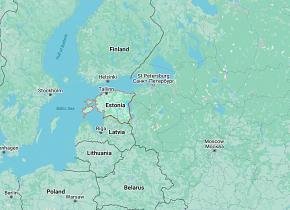High-Tech Swadeshi
As my regular readers are aware, I keep harping the theme that political action is usually futile, or costs more in effort than the payoff is worth. As Charles Johnson has argued, one can circumvent privilege and the coercive laws it depends on for a tiny fraction of the effort required to change such laws through the political process.
Rather than waste time and heartache fighting to remove subsidies and regulatory protections from big corporations, or seeking government permission to engage in the forms of economic and social organization we want, we should put our efforts into simply building the kind of society we want to live in.
One of the best examples I've seen of such an effort is the Open Source Ecology project, with its Factor e Farm demonstration site, near Kansas City. Under the leadership of Marcin Jakubowski, OSE is attempting to create the technological building blocks for low-cost, decentralized, diversified local economies. It aims to create the basic production machinery for such an economy, along with the basic tools of daily life. This project is extremely relevant to the needs not only of relocalized industrial economies in the West, but of village economies in the Third World.
The project envisions a Global Village Construction Set (GVCS) of fifty tools, including open-source computer numeric controlled (CNC) machine tools like lathe, drill press, milling machine, router, cutting table, and 3-D printer, along with an induction furnace for smelting, aluminum extractor from clay, bio-plastic extruder, and circuit fabrication mill.
Tools for daily life include a wind turbine (scalable up to 50 kw) and steam generator, threshing machine, hay bailer, the LifeTrac tractor, the CEB (compressed earth block) Press, cement mixer, sawmill, backhoe and bulldozer, the Power Cube (a multi-purpose hydraulic power unit), soil pulverizer, and well-drilling rig.
Factor e Farm's progress to date is nothing short of spectacular.
Most of the CNC tools have been prototyped and there's an on-site Fab Lab. The LifeTrac and CEB Press are in serial production. All designs are open source, free to anyone who wants to put them into production anywhere in the world.
In addition, the project feeds itself with a large permaculture operation.
OSE's True Fan support network provides $7,000 a month in funding. The project recently obtained a $60k donation, and has $100k on the way from the Kauffman Foundation to be used for "production scaling and fabricator training for enterprise replicability."
Present funding levels permit concurrent development of ten GVCS projects at a time, and Jakubowski projects completion of the entire package in 2012.
The beauty of it is, the homebrew nature of the tools means they're extraordinarily cheap compared to their commercial counterparts. A 3-D printer or cutting table can be produced with on-site labor for a few hundred dollars in materials. The other great thing is, small-scale production in a garage factory renders patent laws virtually null and void. Like copyright laws, patents were designed for an age when reproduction was expensive and controlled by a handful of corporate gatekeepers. The transaction costs of detecting violations and enforcing patents against knockoffs by neighborhood factories producing on such a small scale are far more than the effort is worth.
Such technology will likely replace a growing share of traditional manufacturing, as local garage factories fill in the gaps left by the collapse of corporate supply and distribution chains in the coming age of $200/barrel petroleum.
More importantly, it's ideal for a Third World village economy. The extremely low cost of the production machinery means that for $10,000 or not much more, just about any tool or consumer good needed in a Third World village or favelah -- aside from a few things like microprocessors -- can be manufactured on the scale of local demand. And this local, diversified economy can survive independently of international capital markets and giant fleets of container ships.
This technology is not merely destroying, but totally obliterating, the ostensible rationale -- the extremely high capital outlays required for mass-production machinery -- used to justify Third World models of development based on exporting raw materials, supplying sweatshop labor, and begging for economic colonization by rich foreign corporations. The micromanufacturing revolution reverses the technological shift that originally led to the wage and factory systems -- it enables a shift from expensive, product-specific machinery back to affordable, general-purpose tools.
Soon the people of a Third World village will be able to say to the transnational corporations: "No thanks! We'll use our raw materials and crops for our own benefit now -- and use our labor to produce for ourselves. Your services are no longer required."
About the writer:
C4SS Research Associate Kevin Carson is a contemporary mutualist author and individualist anarchist whose written work includes Studies in Mutualist Political Economy, Organization Theory: A Libertarian Perspective, and The Homebrew Industrial Revolution: A Low-Overhead Manifesto, all of which are freely available online. Carson has also written for such print publications as The Freeman: Ideas on Liberty and a variety of internet-based journals and blogs, including Just Things, The Art of the Possible, the P2P Foundation and his own Mutualist Blog.
Comments
There are 0 comments on this post












